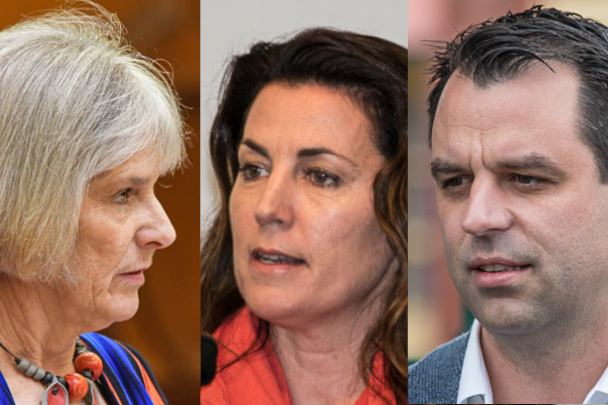Tasmanian government accused of stalling political donations disclosure bill

Independent and Labor MPs have expressed alarm that the Tasmanian government is treating the political donations disclosure reform such a low priority that promised changes may not be in effect before the next state election.
The notice paper for this week’s sitting of the upper house lists the Electoral Disclosure and Funding Bill as the last of eight bills for possible debate, suggesting there may be little, if any, progress on it this week.
It took a similar approach during the last sitting of the Legislative Council, when the political donations disclosure bill listed was last and only brought on when the government had run out of other legislation to consider.
The Leader of the Government in the Legislative Council, Leonie Hiscutt, recently said that “as the election will not be until 2025, there is no hurry with this particular bill”.
The bill passed the House of Assembly in late November and was introduced to the Legislative Council the following day, but languished on the notice paper until mid-September. Since then, aside from briefings, the bill has been discussed late on the last afternoon of two sitting weeks.
A government spokesperson told Tasmanian Inquirer the premier and ministers had made clear on several occasions that their intention was to have the legislation through parliament before the end of the year.
But Meg Webb, an independent member of the Legislative Council, said there was a significant risk that the continual delays could result in another state election without donations disclosure in place.
“If there is an early election in 2024, the government’s deliberate procrastination on progressing this bill has guaranteed Tasmanians will head into yet another state election where the vast majority of donations will be hidden,” she said.
Josh Willie, a Labor MP of the Legislative Council, said the government had “done everything in their power not to progress these reforms” and called on Premier Jeremy Rockliff to outline a timetable for finalising the bill.
Willie pointed to a statement by former attorney-general Elise Archer when she announced her resignation from parliament, in which she criticised the organisational wing of the state Liberal party for failing to support her “particularly on difficult policy matters such as electoral reform”.
“With the government continually pushing this bill to the back of the queue, the risk is that amendments will be dealt with in a piecemeal fashion over days rather than as part of a focused debate.”
Meg Webb
In public consultations on the proposed bill, the state Liberal party made two submissions vehemently opposing political donations reforms and strongly objecting to critical elements of the government’s proposals, including lower disclosure thresholds, public funding and increased frequency of disclosure. The state party proposed the donations disclosure threshold be set at between $25,000 and $50,000.
The Liberal party is likely to benefit the most if donations disclosure is not in place by the next state election. Returns filed with the Australian Electoral Commission revealed that the party received $3.8 million in income in 2021-22, more than double the combined revenue of Labor and Greens branches.
Fragmented debate
The government’s bill proposes the disclosure of donations of more than $5000 and the provision of public funding for political parties and candidates but does not include a cap on campaign expenditure. Civil society groups, Labor, the Greens and independent MPs say the bill has significant omissions and loopholes.
Labor has foreshadowed amendments to the bill, including lowering the disclosure threshold to $1000 a year, introducing campaign spending caps and requiring monthly disclosure during campaign periods. It has also flagged an amendment to related legislation to mandate truth in political advertising.
Webb has foreshadowed a range of other amendments, including disclosure in the final weeks before an election, restrictions on anonymous donations and a ban on political donations from property developers, tobacco and gaming businesses.
It is unclear whether Labor is open to supporting amendments proposed by Webb or other independents. In his second-reading speech last month, Willie said he had been thinking about “how far do we push the current government before the bill fails?”
A spokesperson for Willie did not respond to requests for clarification on Labor’s position.
The Legislative Council is scheduled to sit for four more weeks this year, with about eight days available for government business.
Webb said she was concerned the government’s approach could affect debate on the political donations legislation. “With the government continually pushing this bill to the back of the queue, the risk is that amendments will be dealt with in a piecemeal fashion over days rather than as part of a focused debate. If the government wanted to sabotage the chances of successful amendments, this is certainly one way of going about it,” she said.
 @BobBurtonoz
@BobBurtonoz